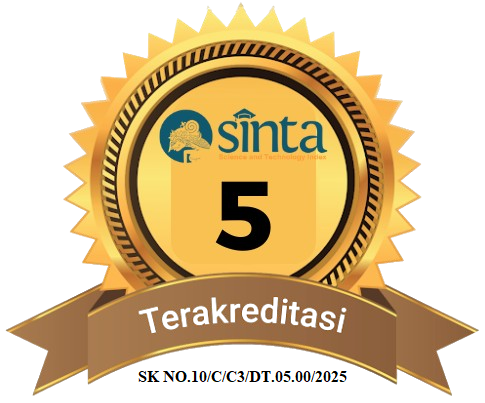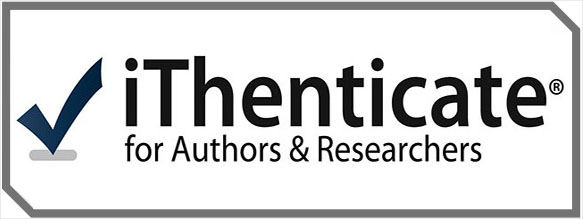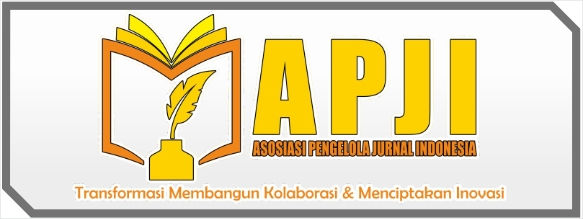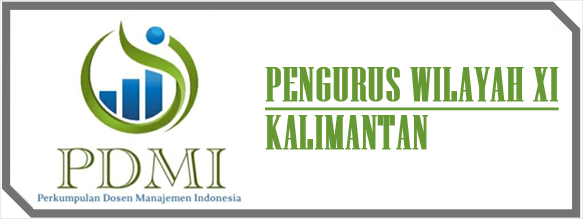Collaborative Management in Ecotourism Business: Evidence from Perum Perhutani and Guci Ashafana Partnership
DOI:
https://doi.org/10.62394/projmb.v4i1.192Keywords:
Collaboration, Ecotourism, State Owned Enterprise (SOE), Community Based Tourism (CBT)Abstract
Purpose – This study aims to examine the collaboration between Perhutani KPH Pekalongan Barat and Guci Ashafana in the development of state forest-based ecotourism. The research is grounded in Perhutani’s 2024 strategic objective to empower subsidiaries through business spin-offs. This study seeks to contribute to the understanding of collaborative governance practices in the context of sustainable tourism development, particularly by analyzing how theoretical principles of collaboration are operationalized in practice.
Design/method/approach – A qualitative descriptive approach was employed to explore the collaboration process. Data were collected through interviews, document analysis, and direct observation. The analysis was guided by the collaborative governance framework developed by Ansell and Gash, focusing on elements such as dialogue, trust, commitment, shared understanding, and intermediate outcomes.
Findings – The findings reveal that the collaboration was grounded in intensive face-to-face dialogues, transparent communication, and mutual commitment. Trust between Perhutani and Guci Ashafana was built through consistent actions and fulfillment of agreed responsibilities. The cooperation agreement reflected a shared understanding that integrated economic, ecological, and social goals. The collaboration resulted in tangible community empowerment through job creation, increased local economic involvement, and environmental conservation initiatives.
Implications – The results demonstrate how collaborative governance can be effectively implemented in state-owned enterprise initiatives, offering practical insights for policymakers and practitioners seeking to develop community-based tourism within forest areas. It also highlights the importance of aligning institutional objectives with community needs.
Novelty/Originality – This research provides a rare empirical example of successful collaboration between a state-owned enterprise and a local tourism operator in Indonesia, applying the collaborative governance model to a real-world ecotourism project. The study contributes to the limited body of literature on SOE-led sustainable tourism partnerships in Southeast Asia.
Downloads
References
Badan Pusat Statistik Indonesia Retrieved at: https://www.bps.go.id/id (Accessed: 06 March 2025).
Ba, Y., Nair, S., & Kedia, M. (2024). Cross-Sector Collaboration, Nonprofit Readiness, And Sustainability Transitions. Environmental Innovation and Societal Transitions, 53. https://doi.org/10.1016/j.eist.2024.100933
Barfield, A. (2016). Collaboration. ELT Journal, 70(2), 222–224. https://doi.org/10.1093/elt/ccv074
Djabbari, M. H. (n.d.). Public Private Partnership Di Sektor Pariwisata Kabupaten Toraja Utara: Model Life Cycle Contract. Public Private Partnership in The Tourism Sector of Toraja Utara District: Life Cycle Contract Model.
Fairuza, M. (2017). Kolaborasi antar Stakeholder dalam Pembangunan Inklusif pada Sektor Pariwisata (Studi Kasus Wisata Pulau Merah di Kabupaten Banyuwangi). www.kabarbanyuwangi.com
Gazley, B. (2017). The Current State of Interorganizational Collaboration: Lessons for Human Service Research and Management. In Human Service Organizations Management, Leadership and Governance (Vol. 41, Issue 1, pp. 1–5). Routledge. https://doi.org/10.1080/23303131.2015.1095582
Hanafi Ahmad, A. (2022). Pengaruh Jumlah Kunjungan Wisatawan, Objek Wisata, Dan Retribusi Pariwisata Terhadap Pendapatan Asli Daerah. Jurnal Sosial Ekonomi Bisnis, 2(1), 50–61. https://doi.org/10.55587/jseb.v2i1.34
Hani, U., Astuti, D. P., & Si, M. (n.d.). Partnership Pattern In Optimizing Ecotourism Concept For Karimunjawa Tourism Development In Jepara Regency. https://fisip.undip.com/
Hidayat, M. H. D., Khairil Amran, & Dewi Sulfa Saguni. (2023). Collaborative Process: Trust Building Indicator Dalam Pengelolaan Objek Wisata Alam Mendatte Park Di Kabupaten Enrekang. Jurnal Administrasi Publik, 19(2), 261–275. https://doi.org/10.52316/jap.v19i2.179
Jackson, P., Mavi, R. K., Suseno, Y., & Standing, C. (2018). University-Industry Collaboration Within The Triple Helix Of Innovation: The Importance Of Mutuality. Science and Public Policy, 45(4), 553-564. https://doi.org/10.1093/SCIPOL/SCX083
Kementerian Lingkungan Hidup dan Kehutanan Republik Indonesia. (2023). Keputusan Menteri Lingkungan Hidup dan Kehutanan Republik Indonesia Nomor SK.487/MENLHK/SETJEN/KUM.1/5/2023 tentang Pedoman Perhutanan Sosial Kemitraan Kehutanan dan Kemitraan Kehutanan Perhutani Produktif.
Kia, Z. (2021). Ecotourism in Indonesia: Local Community Involvement and The Affecting Factors. Journal of Governance and Public Policy, 8(2). https://doi.org/10.18196/jgpp.v8i2.10789
Lulik Fullela Rakhman, L., & Puspitasari Rochman, G. (2023). Model Kelembagaan dalam Pengelolaan Desa Wisata Berbasis Agro-ekowisata dan Budaya di Indonesia. Bandung Conference Series: Urban & Regional Planning, 3(2), 606–616. https://doi.org/10.29313/bcsurp.v3i2.8724
Majchrzak, A., Jarvenpaa, S. L., & Bagherzadeh, M. (2015). A Review of Interorganizational Collaboration Dynamics. In Journal of Management (Vol. 41, Issue 5, pp. 1338–1360). SAGE Publications Inc. https://doi.org/10.1177/0149206314563399
Murniati, K., Riantini, M., & Windyata, A. V. (2025). Evaluating Tourism Performance through Tourist Perceptions: A Case Study of Petengoran Mangrove Tourism in Lampung, Indonesia. Jurnal Sylva Lestari, 13(1), 1–20. https://doi.org/10.23960/jsl.v13i1.976
Mu’tashim, M. R., & Indahsari, K. (2021). 1 st E-proceeding SENRIABDI 2021 Seminar Nasional Hasil Riset dan Pengabdian kepada. In Masyarakat Universitas Sahid Surakarta (Vol. 1, Issue 1). https://jurnal.usahidsolo.ac.id/index.php/SENRIABDI
Myrna Sukmaratri, & Maya Damayanti. (2016). 12907-29692-1-SM.
Perum Perhutani. (2024). Peraturan Direksi Perum Perhutani Nomor: 06/PER/DIR/02/2024 tentang Pedoman Kerja Sama Pengelolaan Hutan Perum Perhutani (ditetapkan 28 Februari 2024).
Program Kerja (2024) Perhutani. Available at: https://www.perhutani.co.id/tentang-kami/program-kerja/ (Accessed: 07 March 2025).
Rita Fiantika, F., Wasil, M., & Jumiyati, S. (2022). Metodologi Penelitian Kualitatif. www.globaleksekutifteknologi.co.id
Roberts, D., van Wyk, R., & Dhanpat, N. (n.d.). Exploring Practices For Effective Collaboration.
Surya Wijaya, N., Wayan, D. I., Sudarmawan, E., Tinggi, S., & Internasional, P. B. (2019). Community Based Tourism (CBT) Sebagai Strategi Pengembangan Pariwisata Berkelanjutan Di DTW Ceking Desa Pekraman Tegallalang Community Based Tourism (CBT) As A Sustainable Tourism Development Strategy In Ceking Dtw, Tegallantang Village. Jurnal Ilmiah Hospitality Management Disubmit, 10(1), 77–98. https://doi.org/10.22334/jihm.v10i1
Wondirad, A., Tolkach, D., & King, B. (2020). Stakeholder collaboration as a major factor for sustainable ecotourism development in developing countries. Tourism Management, 78. https://doi.org/10.1016/j.tourman.2019.104024
Downloads
Published
How to Cite
Issue
Section
License
Copyright (c) 2025 Alfiyah Dwi Puspita, Irsyadul Ibad

This work is licensed under a Creative Commons Attribution-ShareAlike 4.0 International License.




















